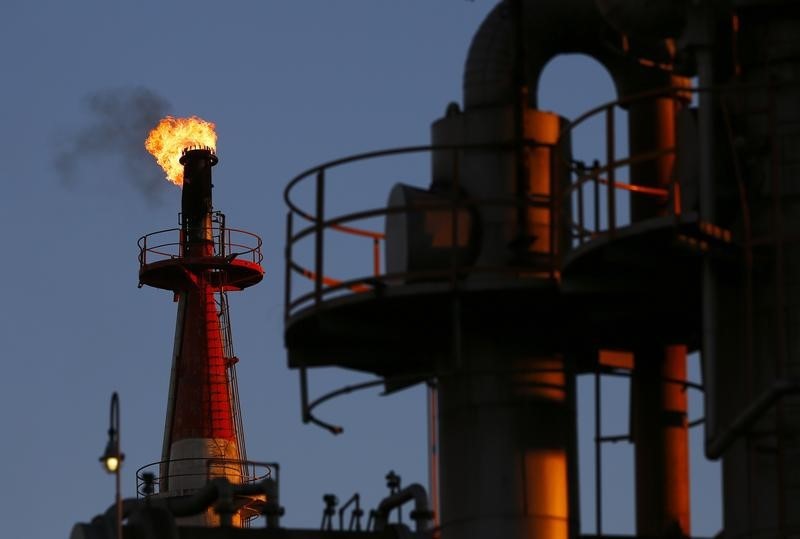By Ambar Warrick
Investing.com-- Oil prices edged lower after a stellar rally on Tuesday, as traders awaited more details from OPEC+ members on the scale of their signaled supply cuts.
London-traded Brent oil futures were largely unchanged at $102.68 a barrel, while U.S. West Texas Intermediate futures fell 0.2% to $96.77 a barrel by 20:16 ET (00:16 GMT).
Both contracts rallied nearly 4% each on Monday, as traders bet that the Organization of Petroleum Exporting Countries and its allies (OPEC+) will cut production to offset any major decline in crude rates.
Saudi Arabia, the leader of the cartel, had signaled as much last week, sparking crude’s latest rally.
But traders are now awaiting more details on how the OPEC+ will carry out its cuts, given that most members of the organization are currently producing well below their daily quotas. The cartel is set to meet on September 5, where it will likely provide more details on the planned cuts.
Oil prices rallied sharply since last week on expectations that the market will remain tight thanks to the supply cuts. Expectations that a gas shortage in Europe will spur demand for heating oil have also bolstered prices.
But recent data from Gas Infrastructure Europe shows that the bloc is filling its gas inventories well ahead of schedule, which is likely to allow it to better navigate winter demand and an end to Russian supply.
The bloc intends to fill 80% of its inventories by Nov. 1. As of Sunday, it has filled 79.94% of its inventories.
This could see oil demand in Europe being slightly lower than expected in winter. Natural Gas Futures tumbled over 2% on Monday.
But the bloc is still struggling to meet gasoline demand, with pump prices close to record highs. The U.S. has been steadily drawing on its inventories to ship oil to the bloc and meet demand.
U.S. inventory data from the American Petroleum Institute, due later today, is likely to shed more light on this trend.
European leaders are also set to meet in September to plan energy reforms that are likely to sway oil demand in the bloc.
